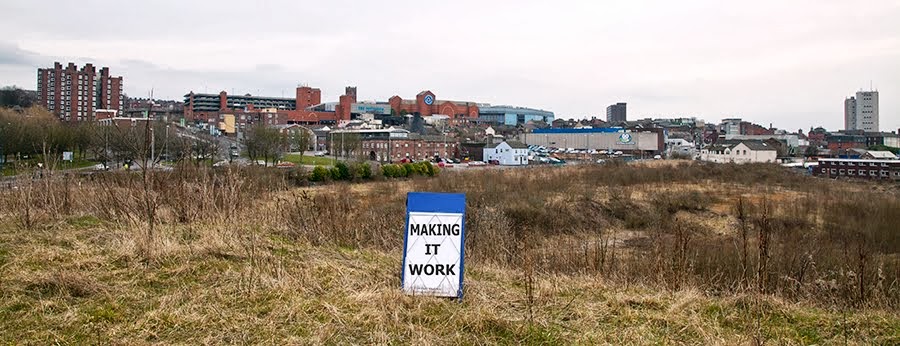Ultimately the making it work project is about exploration and change. These two elements have been key to the development of @bITjAM since 2006. So to add to the knowledge base being generated here I want to write a few words of reflection on our experience so far of turning a digital arts 'hobby' into a limited company that works across many sectors.
Those of you who have known us since the heady days of running regular Geek events/hackspaces/secret laptop have (hopefully) witnessed a change in what we do. We initially set up bITjAM as a space for artists and geeks to play together, nothing much more than that, it was a happy accident that quickly gained a following and a vibe. Both myself and Ben were already working full time elsewhere and bITjAM was merely a plaything.
It became increasingly apparent that bITjAM had something to offer outside of a live event. The technology, skills, approach and experiences we had enabled us to set up funded projects as well as work in collaboration with other organisations, predominantly in the arts and community setting. However on reflection this is where we (and possibly numerous other arts organisations) began to form a dependence on specific funding streams.
Much of the funding in our early days of being a more serious 'arts organisation' came from streams that required the company to work with 'hard to reach' or somehow disadvantaged groups. We felt this was the right thing to do, I suppose looking back, for me that was because of my experience of working both in the NHS at the time and working in community arts. What we did not do at this time was see what we could offer in the private sector alongside local communities; how our skills with creative technologies could help businesses, instead we became dependent on State funding.
This dependence has been an area we have been focusing on and shifting away from since early 2012. We feel much of the success of shifting to a B2B model is about making the right connections as well as speaking the right language when offering services. Much of the language we were used to was based on the Stoke on Trent equals deprived lexicon, whereas we needed to 'provide creative tech solutions and services' to other sectors.
We have found it useful revisiting many of our funding applications and 'analysing' the content. This can be done simply by reading through, highlighting content or in our case (because of said level of geekiness c/o data tools we use) we have analysed and visualised ourselves to get a view on the language used.
 |
| Correlation analysis (original is interactive) |
 |
| Concept analysis |
 |
| Word cloud |
My advice is revisit all the word docs you have and scan through them, remind yourself what you can do and have done, be proud of it, it's your products, your services that you will offer in the business world if thats the direction you want to take.
